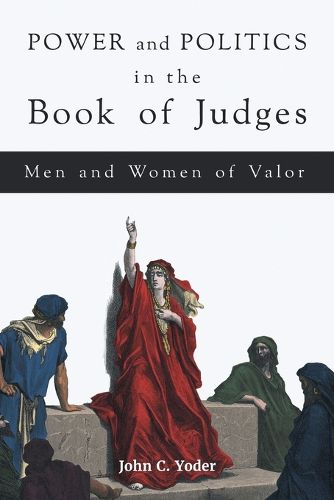Readings Newsletter
Become a Readings Member to make your shopping experience even easier.
Sign in or sign up for free!
You’re not far away from qualifying for FREE standard shipping within Australia
You’ve qualified for FREE standard shipping within Australia
The cart is loading…






Power and Politics in the Book of Judges studies political culture and behavior in premonarchic Israel, focusing on the protagonists in the book of Judges. Although the sixth-century BCE Deuteronomistic editor portrayed them as moral champions and called them judges, the original bardic storytellers and the men and women of valor themselves were preoccupied with the problem of gaining and maintaining political power. John C. Yoder considers the variety of strategies the men and women of valor used to gain and consolidate their power, including the use of violence, the redistribution of patronage, and the control of the labor and reproductive capacity of subordinates. They relied heavily, however, on other strategies that did not deplete their wealth or require the constant exercise of force: mobilizing and dispensing indigenous knowledge, cultivating a reputation for reliability and honor, and positioning themselves as skillful mediators between the realms of earth and heaven, using their association with YHWH to advance their political, economic, or military agenda.
$9.00 standard shipping within Australia
FREE standard shipping within Australia for orders over $100.00
Express & International shipping calculated at checkout
Power and Politics in the Book of Judges studies political culture and behavior in premonarchic Israel, focusing on the protagonists in the book of Judges. Although the sixth-century BCE Deuteronomistic editor portrayed them as moral champions and called them judges, the original bardic storytellers and the men and women of valor themselves were preoccupied with the problem of gaining and maintaining political power. John C. Yoder considers the variety of strategies the men and women of valor used to gain and consolidate their power, including the use of violence, the redistribution of patronage, and the control of the labor and reproductive capacity of subordinates. They relied heavily, however, on other strategies that did not deplete their wealth or require the constant exercise of force: mobilizing and dispensing indigenous knowledge, cultivating a reputation for reliability and honor, and positioning themselves as skillful mediators between the realms of earth and heaven, using their association with YHWH to advance their political, economic, or military agenda.